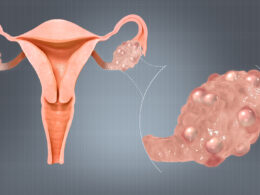Steve Barclay appointed as health secretary after Sajid Javid’s resignation: Mr. Johnson’s position is still in jeopardy as a result of the simultaneous resignations of both Mr. Javid and Mr. Sunak; however, several cabinet ministers, including Dominic Raab, Liz Truss, Michael Gove, Therese Coffey, and Ben Wallace, have indicated that they will remain in the government and continue to support the Prime Minister.
According to the announcement made by Downing Street, Steve Barclay will serve as the new health secretary.
A former chancellor of the Duchy of Lancaster and chief of staff in Downing Street, Mr. Barclay is no stranger to high-level government positions.
It follows the shocking departure of Sajid Javid, which was then followed by the resignation of Chancellor Rishi Sunak.
Boris Johnson was fighting to keep his job at Number 10 on Tuesday evening as concerns grew over how he had handled the controversy surrounding disgraced deputy chief whip Chris Pincher’s actions. Earlier in the evening, two senior cabinet ministers made a stunning resignation announcement.
Political epicenter: Both Rishi Sunak and Sajid Javid have resigned; watch this space for immediate reaction.
Mr. Pincher resigned from his position as deputy chief whip last week after allegations surfaced that he inappropriately touched two men at the upscale Carlton Club. However, Mr. Johnson was aware of the charges against Mr. Pincher as early as 2019.
When it was discovered that Mr. Pincher had acted inappropriately while he was a minister in the Foreign Office in 2019, the prime minister admitted that he should have fired Mr. Pincher, but instead he proceeded to assign him to various jobs within the government.
However, the Prime Minister’s apologies for choosing to nominate Mr. Pincher for the job were not enough to prevent the departures of the two former cabinet members, which took place within minutes of one other.
Mr. Javid stated that the people of the United Kingdom “demand integrity from their government,” but the public today believes that the administration of Mr. Johnson is neither competent nor “operating in the national interest.”
In his response to Mr. Javid’s resignation, the Prime Minister told the former health secretary that he was “sad” to receive his letter and hinted that his administration will “continue to deliver” plans for the National Health Service (NHS).
The Prime Minister wrote a short letter to Saj in which he addressed her as “Dear Saj, I’d want to express my gratitude for the letter you sent this evening, in which you offered your resignation. I am really sorry that you sent that to me.
You have distinguished both this government and the people of the United Kingdom in the service that you have rendered to them.
In conclusion, he said, “I shall miss you very much, but I am looking forward to the contributions you make from the benches.”
Mr. Johnson’s position is still in jeopardy as a result of the simultaneous resignations of both Mr. Javid and Mr. Sunak; however, several cabinet ministers, including Dominic Raab, Liz Truss, Michael Gove, Therese Coffey, and Ben Wallace, have indicated that they will remain in the government and continue to support the Prime Minister.
Oliver Dowden, the chairman of the party, resigned from his position last month as a result of the disastrous results of three crucial by-elections that took place in June in the towns of Tiverton, Honiton, and Wakefield.
Following the resignations of Mr. Javid and Bim Afolami, who both took place live on television on Tuesday evening, the jobs of chancellor and vice party chairman are both currently vacant. The position of chairman of the Conservative Party is also currently vacant.
After moving Mr. Barclay to the position of health secretary, the Prime Minister is currently in the process of hiring the fourth chief of staff for Downing Street during his term.
If the rules of the Tory 1922 Committee are amended to allow another vote of confidence within the next year, it is possible that the destiny of the prime minister may ultimately rest with backbench members of parliament.
Last month’s vote of confidence was barely won by the Prime Minister, but he still faced a revolt that was larger than Theresa May.
There were 148 votes cast against the prime minister, but 211 votes were cast in favor of him, giving him a majority of 63.
To remain in office, he needed a simple majority, which would have required at least 180 votes.
As a direct consequence of this vote’s outcome, 59 percent of Conservative MPs supported Mr. Johnson, while 41 percent voted against him.









